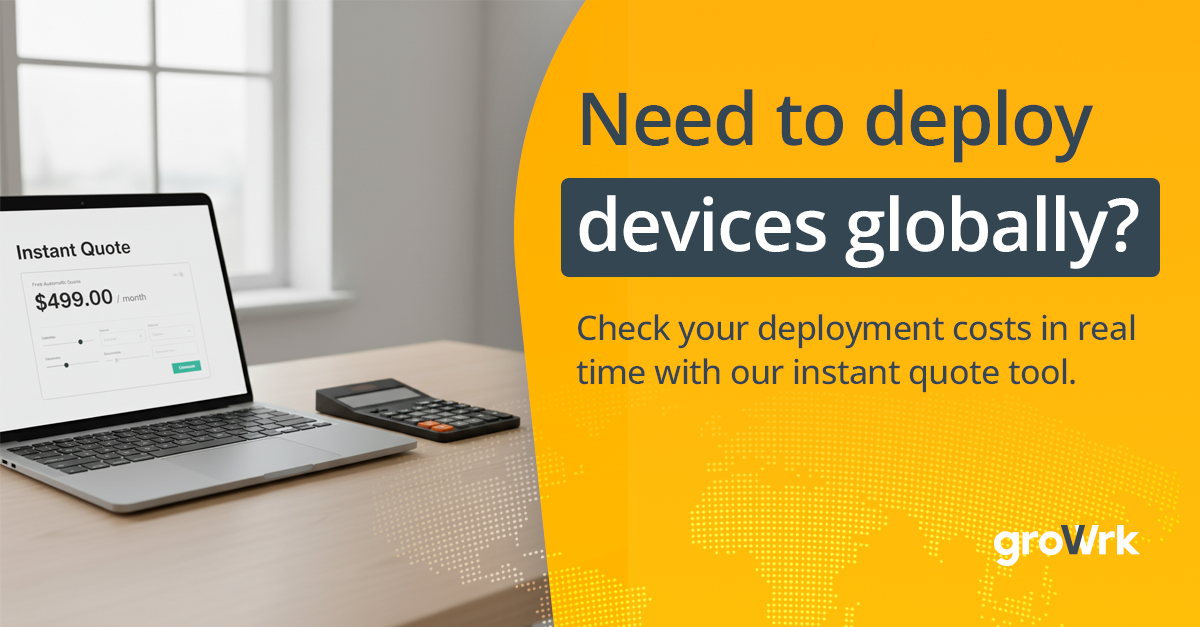How to send IT equipment to Switzerland
Sending laptops or IT equipment to teams in Switzerland? GroWrk handles shipping, customs, and compliance, ensuring seamless delivery. With our global logistics network, your IT assets arrive efficiently, securely, and on time—without the hassle. Here’s how we simplify IT asset management for your team in Switzerland.
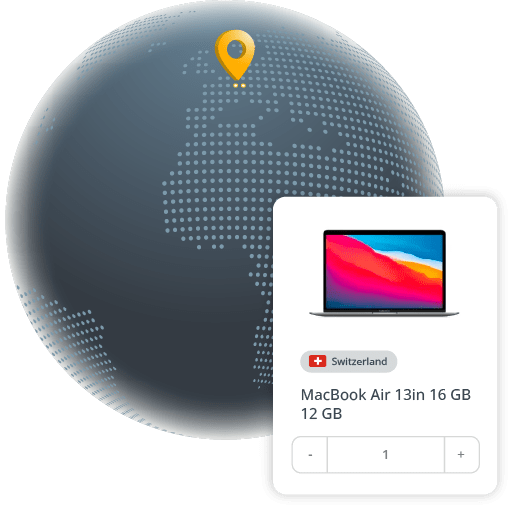
At a glance
Switzerland is known for its robust and innovative IT infrastructure, making it a top destination for businesses looking to scale their IT operations. With a highly developed technological ecosystem, Switzerland offers a strategic location for businesses operating in Europe. Here are some key highlights of IT operations in Switzerland:
|
CURRENCY Swiss Franc (CHF) |
OFFICIAL LANGUAGE German, French, Italian, and Romansh (depending on the region) |
TIME ZONE Central European Time (CET) GMT+01:00 (Central European Summer Time (CEST) GMT+02:00 during daylight saving time) |
|
CUSTOMS DUTY ON ELECTRONICS 0-3% + 7.7% VAT Typically 0-3% customs duties for electronics, with VAT at 7.7%. Certain exemptions or reductions may apply depending on the nature of the goods. |
SHIPPING LEAD TIME 2-5 days (depending on location and shipping method) |
IT OUTSOURCING MARKET CHF 8.5 billion The Swiss IT outsourcing market is estimated to be valued at CHF 7.6 billion in 2024, with significant growth projections, expected to surpass CHF 8.5 billion by 2025. |
Overview of IT operations in Switzerland

Tech Industry Growth: The Swiss IT sector is projected to continue its growth, with the IT services market expected to reach CHF 17.1 billion by 2025. This expansion is fueled by increased demand for digital transformation, cybersecurity, and cloud services.
Skilled Workforce: Switzerland has a highly skilled and multilingual workforce, with a strong emphasis on tech education and innovation.
Data Privacy and Security: Switzerland is known for its strict data privacy regulations, including the Swiss Federal Data Protection Act (DPA), making it a secure environment for businesses handling sensitive information. It is also fully compliant with the EU's GDPR, enhancing its reputation as a trusted hub for IT operations.
High Cost of Operations: While Switzerland offers premium services and security, it comes with higher operational costs compared to other European countries. This is particularly evident in areas like labor, rent, and tech equipment pricing.
Cloud Computing Adoption: Switzerland has one of the highest adoption rates of cloud computing services in Europe. Swiss businesses are increasingly turning to cloud-based solutions to streamline operations and enhance flexibility.
Cybersecurity Focus: With an increase in cyber threats, Switzerland has invested heavily in cybersecurity, making it one of the leading countries in Europe in terms of digital security solutions and infrastructure. The country is home to multiple cybersecurity firms and has strong collaboration between public and private sectors on cyber defense initiatives.
Shipping IT equipment to Swizterland: What you need to know
| Customs regulations |
|
| Duties and taxes |
|
| Required documentation |
|
| Import restrictions |
|
| New vs. Used equipment |
|
| Sensitive Technology |
Export Controls: Specific technologies like encryption software or surveillance equipment are subject to export controls in Switzerland. These items may require special permits, and depending on the nature of the equipment, approval from the Swiss Federal Economic Department (SECO) may be necessary before shipment. |
| Penalties or fines for non-compliance |
|
Checklist for sending laptops to Switzerland
When shipping laptops to Switzerland, it’s important to follow a few best practices to ensure the process goes smoothly, and your equipment arrives safely and on time. Here are some helpful shipping tips:
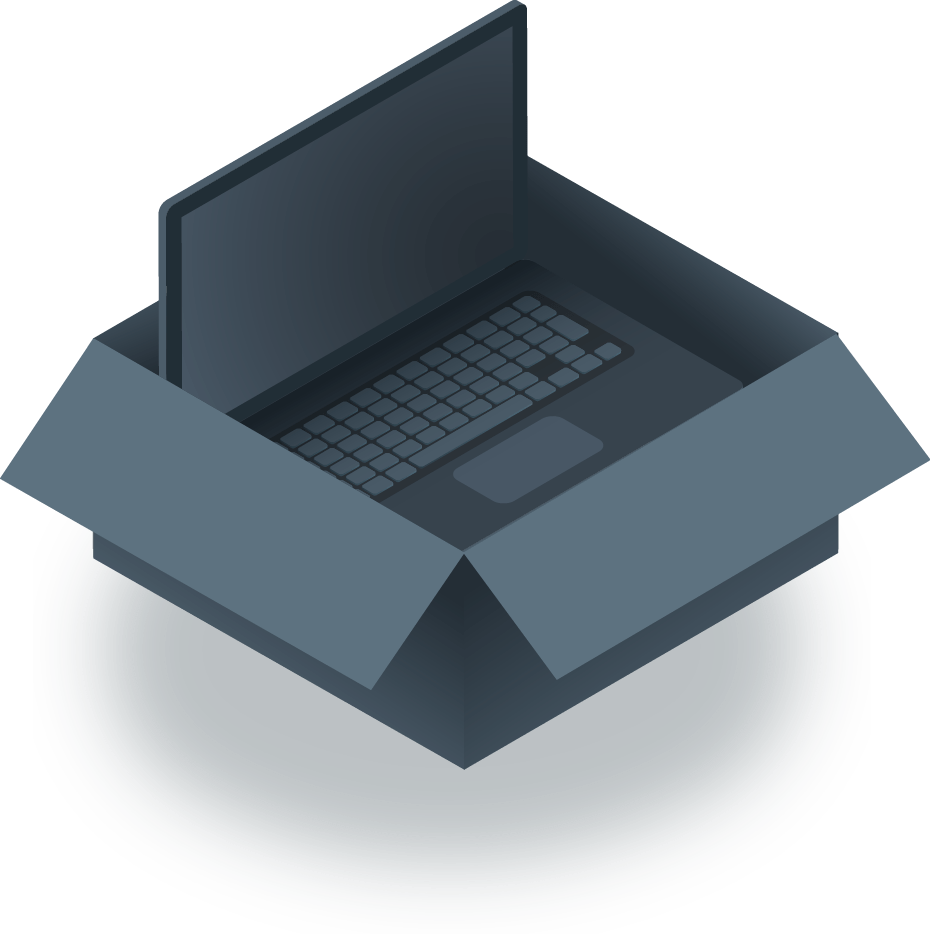
Select trusted couriers: Choose reliable couriers such as GroWrk, DHL, UPS, FedEx, or Swiss Post for international shipping. These carriers offer tracking services and have experience handling Swiss customs procedures.
Check service levels: Select the appropriate shipping option based on urgency. Express shipping (2-5 days) for high-priority deliveries. Standard shipping (5-10 days) for cost-effective options.
Use high-quality packaging: Secure laptops with sturdy, padded boxes and protective materials like bubble wrap, foam inserts, or air cushions to prevent damage during transit.
Disassemble where possible: If shipping accessories like chargers, docking stations, or monitors, package them separately to prevent damage. Remove detachable components if applicable.
Label clearly: Ensure the recipient’s name, address, and contact details are correctly labeled. Mark the package as "fragile" to encourage careful handling.
Accurate product descriptions: On the commercial invoice, provide a detailed and accurate description of the laptop, including its brand, model, and serial number. Inaccurate descriptions may cause customs delays.
Value declaration: Declare the correct value of the laptop to avoid under- or over-declaring, which could lead to customs inspections or fines. The declared value determines any applicable duties and taxes.
Customs declarations: Switzerland is not part of the EU, so all shipments require proper customs documentation. Include the following: Swiss customs declaration, commercial invoice, and packing list.
Proof of origin: If applicable, include a certificate of origin to determine eligibility for preferential trade agreements, such as the Switzerland-EU Free Trade Agreement, which may reduce duties.
Understand import duties & taxes: Laptops are generally duty-free but are subject to Swiss VAT (8.1%) on the declared value, including shipping costs. Customs processing fees may apply depending on the courier.
Pre-pay duties and taxes: Some couriers allow for pre-paid duties and taxes to simplify customs clearance and prevent the recipient from facing unexpected charges upon arrival.
Protect against loss or damage: Consider purchasing shipping insurance for high-value laptops to protect against loss, theft, or damage during transit.
Compliance with Swiss regulations: Ensure compliance with Swiss electronic safety standards, including SEV (Swiss Association for Electrical Engineering), WEEE (Waste Electrical and Electronic Equipment), and RoHS (Restriction of Hazardous Substances) regulations before shipping.
Use tracking tools: Major couriers provide real-time tracking—monitor shipments closely to anticipate customs clearance updates and delivery progress.
Stay in touch with the recipient: Notify the recipient about the expected delivery timeline, tracking updates, and any customs-related requirements to avoid delays.
Expect weather and seasonal delays: Winter weather and peak shipping periods (e.g., Christmas, Black Friday) may cause delivery delays. Plan shipments accordingly.
Swiss domestic delivery options: For final delivery, consider working with Swiss Post, DPD Switzerland, or regional courier services for efficient last-mile distribution.
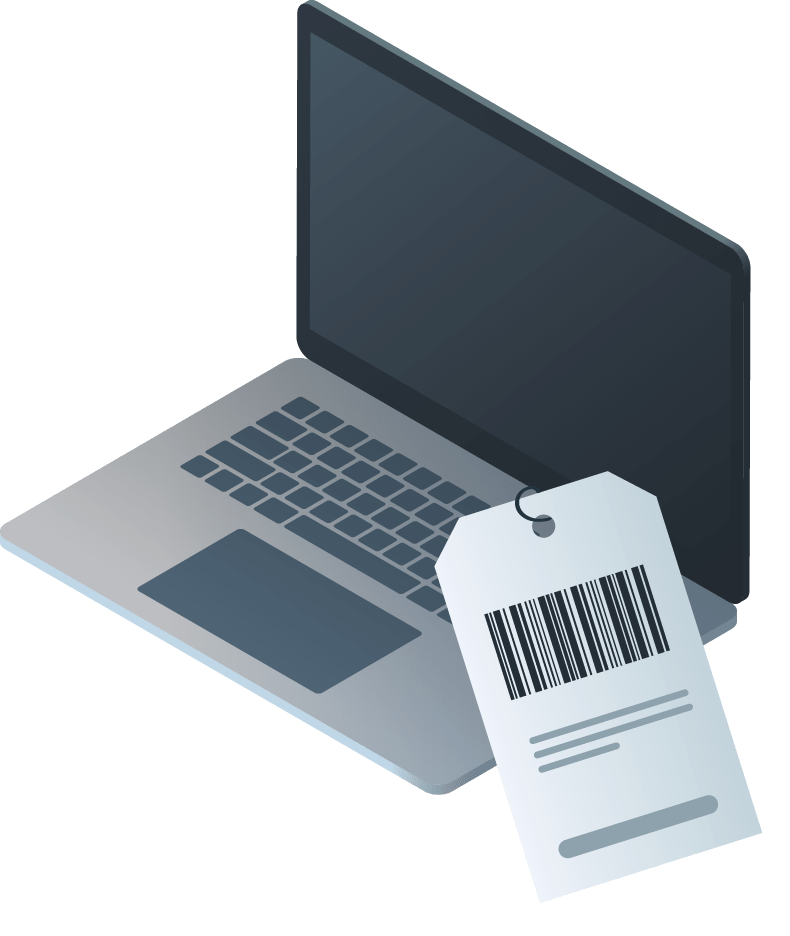
Average cost of IT Equipment in Switzerland
Laptops (Business Grade):
- Mid-range: CHF 1,000 - CHF 2,200
- High-end: CHF 2,200 - CHF 4,400
High-end models such as Apple MacBook Pro, Dell XPS, and Lenovo ThinkPad are priced on the higher end.
Monitors (Business Grade):
- Standard: CHF 200 - CHF 500
- Ultrawide/4K: CHF 600 - CHF 1,200
Monitors from trusted brands like Dell, Samsung, and LG typically range within these prices, with 4K or ultrawide models costing more.
Desktops (Business Grade):
- Standard Desktop PC: CHF 500 - CHF 1,800
- Workstation Desktop (for high-performance tasks): CHF 1,800 - CHF 5,000+
Prices depend on the brand and specifications, with options from HP, Lenovo, and Apple among the most common.
Printers (Laser):
- Standard Office Printers: CHF 150 - CHF 400
- High-Volume Printers: CHF 700 - CHF 2,500
Leading brands such as HP, Canon, and Brother offer a wide range of models for office environments.
Public holidays & IT work hours to plan your shipment
Key public holidays in Switzerland:
- New Year’s Day (Neujahrstag) – January 1
- Good Friday (Karfreitag) – Friday before Easter Sunday (in most cantons)
- Easter Monday (Ostermontag) – Monday after Easter Sunday
- Labour Day (Tag der Arbeit) – May 1
- Ascension Day (Auffahrt) – 40 days after Easter (usually in May)
- Whit Monday (Pfingstmontag) – 50 days after Easter (usually in May or June)
- Swiss National Day (Bundesfeier) – August 1
- Federal Day of Prayer and Repentance (Eidgenössischer Dank-, Buss- und Bettag) – Third Sunday in September
- Christmas Day (Weihnachtstag) – December 25
- Boxing Day (Stephanstag) – December 26 (in most cantons)
Typical work hours for IT professionals
- Standard Workweek: The legal workweek in Switzerland is typically 42 hours, usually from Monday to Friday, with regular working hours between 8:00 AM and 5:00 PM. Companies may offer flexible working hours or the possibility of remote work depending on the industry.
- Overtime: Overtime is common in the IT industry, though it is regulated by Swiss labor laws. Overtime must be agreed upon by both employer and employee, and it is generally compensated either monetarily or with time off. Overtime compensation is typically calculated at a rate of 125% of the standard hourly wage.
- Flexible Working Hours: Many tech companies in Switzerland offer flexible working hours, with the option for employees to adjust their schedules based on personal preferences, as long as they meet the required total working hours. Remote work is also quite common in the IT sector, especially post-pandemic.
What to consider when retrieving IT equipment from employees in Switzerland
| Local delivery and logistics services |
|
| Inventory management |
|
| Logistics challenges for remote locations |
|
| Compliance with Swiss employment laws |
|
| Data protection and security |
|
| Physical condition of equipment |
|
| Consideration of IT equipment upgrades |
|
| Employee communication |
|
How to dispose of IT equipment in Switzerland
Data wiping
- Before disposing of any IT equipment, it’s essential to erase all sensitive data from devices such as computers, servers, and hard drives. Use certified data-wiping software or hire a professional service to ensure that all data is fully destroyed, preventing potential data breaches or theft.
- Many recycling companies offer certified data destruction services as part of their disposal process.
WEEE compliance (Waste Electrical and Electronic Equipment Directive)
- WEEE (Waste Electrical and Electronic Equipment) regulations apply to the disposal of electronic devices in Switzerland. All businesses must ensure that their used IT equipment is handled by certified recycling organizations that meet WEEE standards.
- Under WEEE, it is mandatory to recycle IT equipment through approved disposal and recycling channels to prevent harmful environmental effects.
Disposal of batteries
- Components like batteries, circuit boards, and screens from IT equipment must be disposed of separately. Specialized recycling services ensure that these materials are processed in a way that reduces environmental harm.
- Some items, such as lithium-ion batteries or CRT monitors, may require specific handling and recycling procedures due to their potential to cause environmental harm.
Authorized disposal partners
- To dispose of old IT equipment, businesses should partner with authorized waste management companies or recycling organizations specializing in electronic waste. These organizations are certified to process electronic waste in compliance with local laws.
- You can find certified recycling companies through Switzerland’s SWICO Recycling Program, which ensures that IT equipment is recycled correctly and all hazardous materials are safely disposed of.
Collection and pickup service
- Many IT recycling companies offer collection services to pick up your old IT equipment directly from your business location. This ensures that the disposal process is seamless and handled by professionals.
- Some municipalities may also offer collection events or drop-off points for electronics, so check with local authorities or waste management services to see if this option is available.
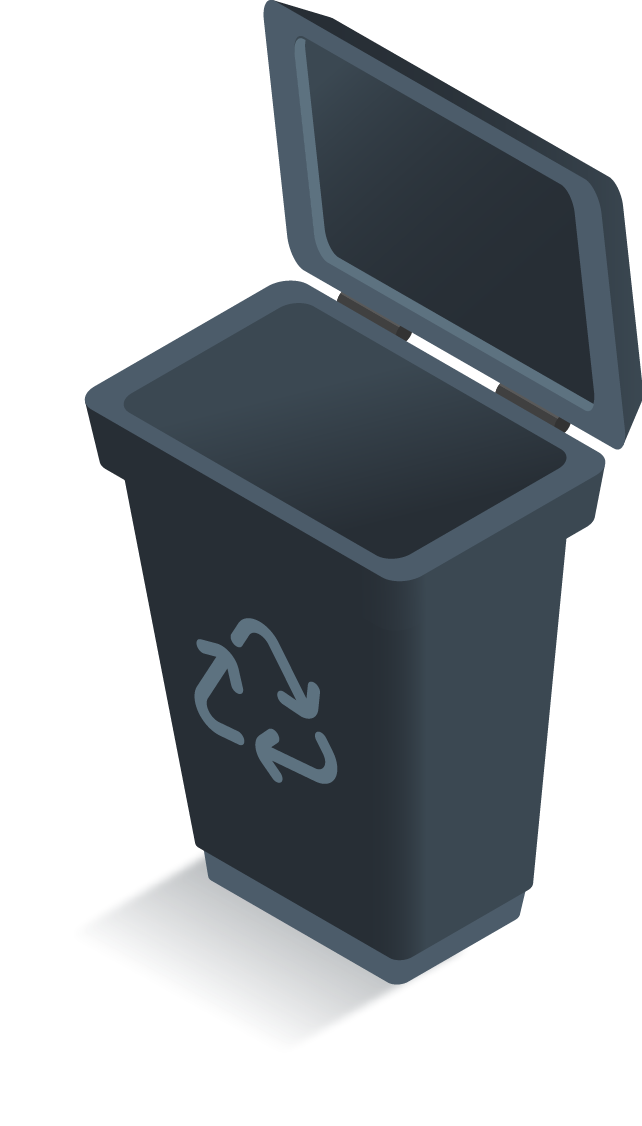
Local IT Outsourcing Solutions in Denmark
You can streamline your IT logistics and asset management with GroWrk’s comprehensive global solution. Whether it’s shipping equipment or managing IT assets across multiple regions, GroWrk helps you stay compliant and efficient, every step of the way. Here’s why GroWrk is the ideal partner for managing your IT assets in Switzerland:

| 1. Wide global coverage |
| With operations in over 150 countries, including Switzerland, GroWrk ensures smooth deployment and management of IT equipment for remote teams across the country. Whether your employees are in Zurich, Geneva, or remote locations, we provide timely, hassle-free service to keep your business running efficiently. |
| 2. End-to-end asset management |
From procurement and deployment to retrieval and disposal, GroWrk simplifies every stage of IT asset management. By handling logistics, compliance, and security, we free your team to focus on business growth while we take care of your IT infrastructure. |
| 3. Intuitive platform for easy deployment |
GroWrk’s intuitive platform makes it easy to order, ship, and track IT equipment in Switzerland. With just a few clicks, you can manage global device rollouts, ensuring employees receive their equipment pre-configured and ready to use, reducing administrative burdens and costly delays. |
| 4. Smooth delivery and equipment retrieval |
From delivering laptops, monitors, and IT accessories to remote employees across Switzerland to managing secure retrieval of assets from departing team members, GroWrk ensures every step is efficient and fully traceable, eliminating logistical headaches. |
| 5. Compliance with Swiss import regulations |
Switzerland’s customs, VAT, and safety regulations can complicate IT shipments. GroWrk ensures full compliance with CE marking, WEEE disposal laws, and tax obligations, avoiding delays, penalties, or unexpected costs—so your IT assets arrive on time and fully compliant. |
| 6. Efficient repairs and maintenance |
GroWrk manages hardware repairs, replacements, and routine maintenance, keeping your IT assets in optimal condition. Whether it’s on-site servicing or remote troubleshooting, we minimize downtime so your team stays productive. |
| 7. 24/7 Support for peace of mind |
From shipping assistance and compliance guidance to real-time troubleshooting, GroWrk’s 24/7 support team ensures your IT asset management runs smoothly and without disruptions—wherever your employees are in Switzerland. |
Procure, configure, and deploy your IT devices from one platform


